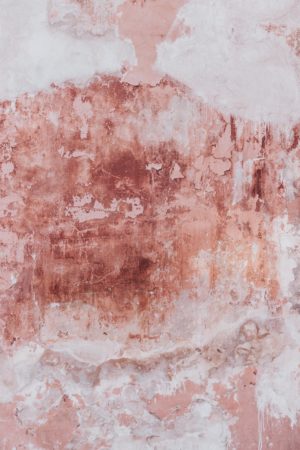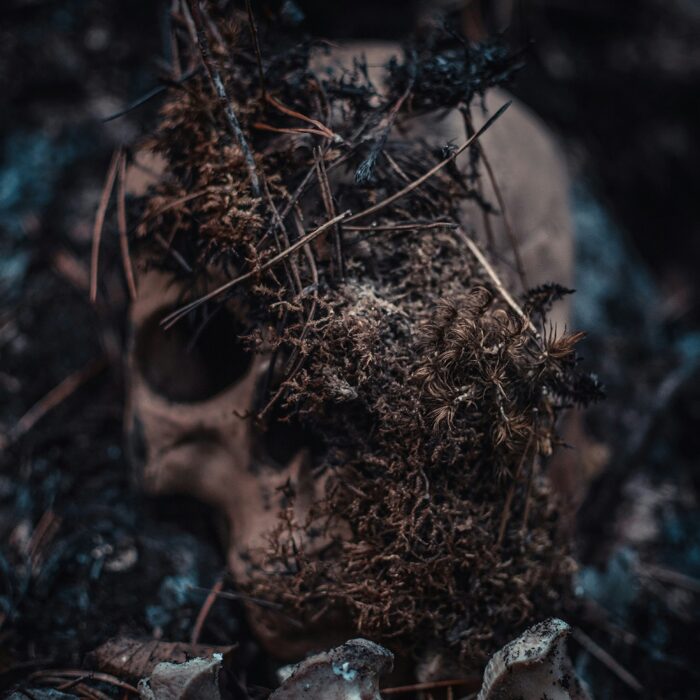You have no items in your cart. Want to get some nice things?
Go shopping
I’ve been out too long, so I thumb the checkout violently and cram everything into my bag. Two cans of chicken noodle soup, a fishnet bag of oranges for vitamin C, a stick of ginger to clear out the funk, eggs for protein. You’ll say yolk makes you nauseous – you always say that – but it’ll be two or three days before you change your mind and snail into the kitchen asking for an omelette. You’ll start to get your strength back after.
Bethnal Green froze while I was in Tesco. Now the cars rush back to full speed and rain splatters the pavement where I wait for the lights to change. Tote bundled against my chest, I speed-walk the ten minutes back, dodging traffic.
There’s a tear in the road at our turning, and everything past it seems to melt down the gentle slope ahead. Cold trickles into my bones as I clang up three flights of metal steps to our flat. There’s no guarantee of warmth once I’m in, either – you’ve left your bedroom window open, to try and dry the walls out.
I enter and the smell curtains over me. A low, nasal prickle of compost and bugs. However many windows we keep open, there is no drying the walls out. I press the kitchen light switch, tracing beads of condensation around the casing. Dropping my bag onto the table, I touch my entire palm to the stud wall that divides our kitchen from the living room. It comes back cool and moist. Worse than usual. I call your name and get no response.
My phone reports I was out for a half hour, max. I glance about for a note.
Perhaps you’re asleep. Perhaps you finally took my advice and went for a walk, although I wish you’d have waited until I got back, so I could loop your arm in mine and carry you out there myself.
The flat is cold. This feels like last time. So, although I should, I don’t go straight to your room. Instead, I unpack the groceries into their labelled places, hoping for a muffled thump of you hitting the floor, or your gasp from a nightmare. Even if I heard you whispering to the walls, like you sometimes do. That would be okay.
The fruit bowl is browning. My hand reaches for a speckled apple to chuck it out, but clingy guilt stops me. I fold my tote into four and flop it onto the pile by the sink. You are more important than cleaning.
The living room glistens with flickering TV light, like I’m underwater. We should never have moved here. The first time we stepped through the doorless frame, you asked about damp issues. I could barely sense it back then – I assumed the smell floated in from a bin store below, and we’d be able to shut it out. But you waded through the air, moving with a thickness and a slowness that didn’t fit you. You were the giggler, the gossip, the one who unpeeled me from walls at parties.
I call you again and hear nothing back. I cross through swirling motes caught in greenish rays, over the carpet that I swear squelches under my shoes, towards the bedrooms and the bathroom.
To the left is my bedroom door – closed, of course. At first, I was closing it to keep the mould out, but even when I forgot, it never came in. The damp never wanted me. So now I keep it shut for some other reason, one I don’t have time to unpack.
To my right is the bathroom: cracked tiles stuck to plasterboard by grey, fudgey grout, brown dots framing the mirror, grey caps growing through the plug holes. I gag at the worsening smell: acid sick, old coffee grain, ashy spice. Beneath my steps the carpet is spongy. You’ve left your toothbrush in the sink, so I place it back in the mug.
The third time I call your name, I pray there’s no response. I hope you’ve gone to your mum’s and made up. That she’ll be the one to take care of you now. And then I tighten the screws on that thought, force it smaller and smaller.
I don’t want to go to your room, but it’s the only one left.
The door is ajar, sagging on its hinge by a couple of centimetres so it doesn’t actually close anymore – even if you wanted it to. Last October, the health team splintered it because the lock jammed. The flat didn’t want them to have you.
I’m outside, leaning to listen, in the spot that always triggers hospital flashbacks. Big vents and aircon units, like they were trying to refresh your heads. The waiting room tasted dry – my tongue stuck to the roof of my mouth. I’d been relieved about that, because what would I have said, anyway? When they told me your diagnosis, when they said I could collect you in a few days, maybe? When I was permitted into your ward to say hello and you just said, Get me out of here, the flat will be lonely.
I ease the door open, loud creaks counting down my entrance. Three, two, one. You’re not in your bed.
It’s made: aged white sheets coated with a sage green blanket, one-eyed Paddington hanging his head on your pillow. My feet catch on each other as I search for clues, hands scrambling. The ground here bunches and spurts. Your name leaves my mouth over and over. I’m thinking about finding you, protecting you, losing you, forgetting you. Everything I touch oozes slick.
Then I hear your bubbling mucus voice, coming from behind me.
Deep breaths. I turn and rattle off my usual. It’s gonna be okay, I promise. It hurts now, but it won’t forever.
My stomach lurches.
You are in the wall. Your arms, chest, and head protrude where it crumbles away in globules. Mottled, grey-purple skin, blending you in. I swallow my vomit.
Your fingers hang limp, so when I reach your side I grab your wrists instead, and tug.
It’s okay, you say, I’m not going anywhere. I’m going to stay here.
I suck in breath and hold it. Then, I plunge my arms into the cottage-cheese plaster. It tries to spit me out but I push deeper, cold creeping up to my elbows. Your body, when I find it, is wet putty. Slippery under my fingers. Muscles screeching, I wrap myself around you and pull harder.
Please don’t, you say, It wants me to stay here forever.
It can’t have you! I force words out over the urge to retch. My heels sink into the floor, and as I drag you the wall sucks back with a sound like a clogged plughole.
It’s not your decision, you say.
But is it yours? Is this really what you want?
Your breathing gets heavy. It doesn’t matter whether I want this. I don’t know any other way.
Your eyelids inch closed, your brow softening. We don’t have time for the whole routine – finding gratitude, planning our night out with the girls on Saturday. You’re too far gone this time. I steady my own breaths and pick through what’s worked before.
Eventually I say, Tell me why it doesn’t matter. If you’re going to go, at least tell me why.
So you do. You drone through stories shared with doctors and therapists and me. So many ways you tried to drown. Drown out, drown in. Stories I can guide you through, I know them so well.
At the end of one story, your voice slurs and your determination melts: I’m sure becomes maybe.
Air bubbles form between us, popping against our skin. I ease you out in parts, the wall hissing air with something like exhaustion.
We fall against the bed, you draped on top of me. I convulse with a shiver, noticing your hand knotted around my wrist. But you have enough strength to climb to your feet, so I can lift you into a piggyback. My knees burn as I stand. Fizzing, the wall ahead of us refinds its shape. For next time.
My bedroom is warm and breathable – I drink the air as I lower you limb by limb to the mattress. You sigh and roll onto your side, facing the door. I climb in beside you and pull a blanket over us.
According to my phone, an hour has passed. As usual, you drift asleep while I browse flat listings. Cambridge Heath, Hackney, Globe Town. Scrolling’s more constructive than crying. I don’t know if moving would fix you, or if any flat in London would try and eat you up.
You were the deepest you’ve ever been. When it happens again, will I be able to stop it?
I blink away tears, and try to focus on our weekend plans, walking myself gently through the imaginary days to come. On Saturday you’ll ask for an omelette, the smell won’t seem so bad, and we’ll plaster glitter on each other in the bathroom and parade through the front door feeling fucking amazing.

About Lauren du Plessis
Lauren du Plessis writes about chaos, transformation, and the meeting between nature and the body. She is currently working on her first novel and is represented by The Good Literary Agency. She lives in a patch of bluebells in the British countryside with her partner and cat.
- Web |
- More Posts(2)




